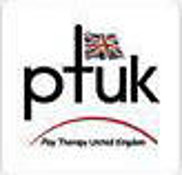An Effective Way of Alleviating Children's Emotional, Behaviour and Mental Health Problems - the Latest Research

Between 74% and 83% of children receiving play therapy, delivered to PTUK/PTI standards, show a positive change
The simple answer to the question; 'How Effective is Play Therapy?' is that between 74% and 83% of children receiving play therapy, delivered to PTUK/PTI standards, show a positive change.
The extent of the improvement depends upon the severity of the presenting issues – the more severe the problems the greater the percentage of children showing a positive change. 74% for those with slight/moderate problems, 83% for those with severe problems.
Age also has an effect on improvement: Generally speaking the younger the child the greater the percentage of children showing a positive change: 80% at age 6, 71% at age 12. Girls show a higher improvement rate than boys - 79% compared to 73%.
The average cost of using play and creative arts therapies is estimated at £693 per child. This estimate is based upon an overall average of 15.4 sessions, applying a cost per session of £45. For every £1 invested annually in targeted services designed to catch problems early and prevent problems from reoccurring, society benefits by between £7.60 and £9.20. (National Economic Foundation 2011).
Play and creative therapies should therefore give a notional return to society of at least £5267 in the long term. However this does not give the full picture because there are many short term benefits specific to the setting, for example: better academic results and less stress for teachers; more successful fostering placements; faster response to medical treatment.
The statistics in this report are based on analyses of data selected from a total database of 8026 cases, with 10,744 pre and post-therapy observations by referrers and parents received from 507 PTUK/PTI registered practitioners.
See the full paper here.


